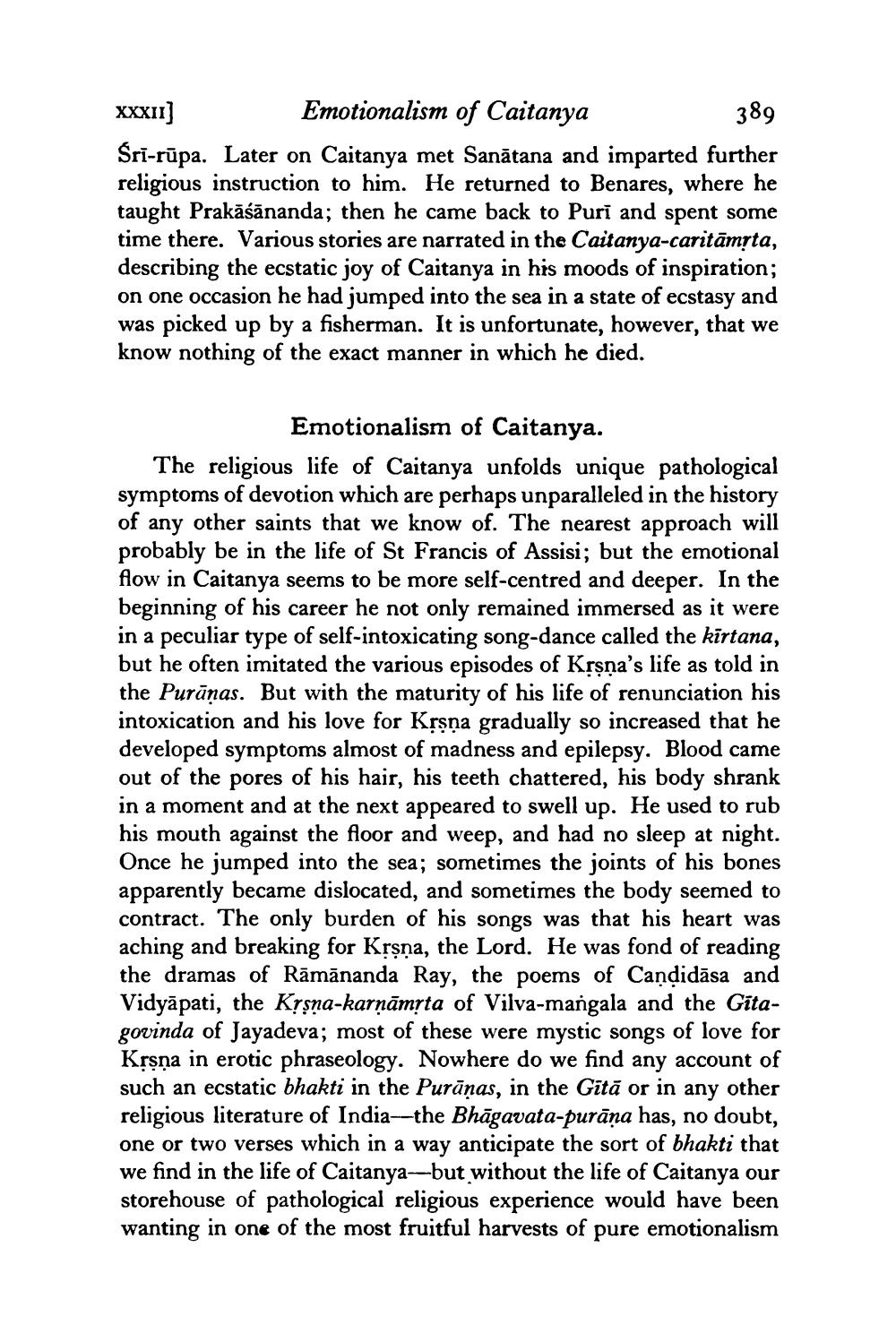________________
XXXII] Emotionalism of Caitanya
389 Sri-rūpa. Later on Caitanya met Sanātana and imparted further religious instruction to him. He returned to Benares, where he taught Prakāśānanda; then he came back to Puri and spent some time there. Various stories are narrated in the Caitanya-caritāmsta, describing the ecstatic joy of Caitanya in his moods of inspiration; on one occasion he had jumped into the sea in a state of ecstasy and was picked up by a fisherman. It is unfortunate, however, that we know nothing of the exact manner in which he died.
Emotionalism of Caitanya. The religious life of Caitanya unfolds unique pathological symptoms of devotion which are perhaps unparalleled in the history of any other saints that we know of. The nearest approach will probably be in the life of St Francis of Assisi; but the emotional flow in Caitanya seems to be more self-centred and deeper. In the beginning of his career he not only remained immersed as it were in a peculiar type of self-intoxicating song-dance called the kirtana, but he often imitated the various episodes of Krsna's life as told in the Purāņas. But with the maturity of his life of renunciation his intoxication and his love for Krsna gradually so increased that he developed symptoms almost of madness and epilepsy. Blood came out of the pores of his hair, his teeth chattered, his body shrank in a moment and at the next appeared to swell up. He used to rub his mouth against the floor and weep, and had no sleep at night. Once he jumped into the sea; sometimes the joints of his bones apparently became dislocated, and sometimes the body seemed to contract. The only burden of his songs was that his heart was aching and breaking for Krsna, the Lord. He was fond of reading the dramas of Rāmānanda Ray, the poems of Candidāsa and Vidyāpati, the Krşna-karņāmrta of Vilva-mangala and the Gitagovinda of Jayadeva; most of these were mystic songs of love for Krsna in erotic phraseology. Nowhere do we find any account of such an ecstatic bhakti in the Purānas, in the Gītā or in any other religious literature of India--the Bhāgavata-purāna has, no doubt, one or two verses which in a way anticipate the sort of bhakti that we find in the life of Caitanya--but without the life of Caitanya our storehouse of pathological religious experience would have been wanting in one of the most fruitful harvests of pure emotionalism




